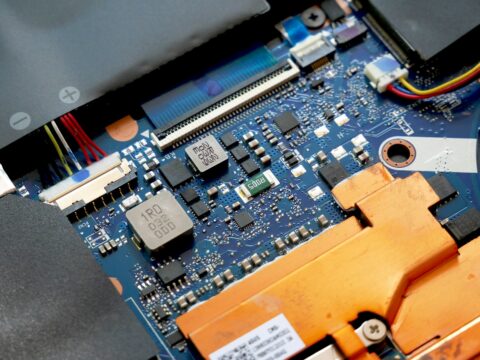ENFORCEMENT OF UAE JUDGMENTS IN INDIA – PROCESS & CHALLENGES

In a recent Notification dated 17th January 2020 (“Notification”), the Government of India declared UAE as a ‘reciprocating territory’ for the purpose of enforcing judgments passed by UAE courts in India. The Notification was issued in pursuance of India-UAE Agreement executed in the year 1999 (“Agreement”) for judicial cooperation in civil and commercial matters.
Although, the Agreement and other related provisions under the Indian Code of Civil Procedure (“CPC”) came into force within a year of the signing of the Agreement, UAE was not yet recognised as ‘reciprocating territory’ under the provision under section 44 A of the CPC. Section 44 A of the CPC provides that Government of India can declare any other country as a ‘reciprocating territory’ for the purpose of execution of decree passed by the courts in such country by an official notification. Indian courts cannot enforce decree passed by any court in foreign country without such notification. It appears that the notification of UAE as a ‘reciprocating country’ is delayed as UAE authorities did not furnish details of superior courts in UAE to Indian authorities.
After the execution of the Agreement, many applications have been filed in different courts across India for the enforcement of UAE judgments. However, issue of notification under section 44A came up during the course of two execution applications filed by Amex (Middle East) in 2018 before a court in Kerala, India, which rejected these applications citing lack of notification under section 44A of CPC. Thereafter, the issue was taken up with UAE authorities, which ultimately resulted into the current Notification of UAE as a ‘reciprocating territory’. Hence, with effect from the Notification judgments of UAE courts can be executed in India.
PROCESS OF EXECUTING UAE JUDGMENTS IN INDIA[1]
Execution of a judgment passed by a UAE court in India involves both legal and recovery actions. While legal actions can be carried out through a court in India with the help of an Indian lawyer/ law firm, recovery actions are mainly executed outside court with the help of recovery professionals.
Legal process
i. UAE
For execution of a judgment/decree passed by UAE court in India, a formal request for execution of such judgment/ decree needs to be filed with the Ministry of Justice, UAE with the following documents duly authenticated:
1. An official copy of the final judgment/decree.
2. A Certificate showing that the judgment/decree is final and executable unless it is provided for in the judgment/decree itself.
3. In case of a judgment/decree in absentia, an authenticated copy of the summons or any other document showing that the defendant was duly summoned.
4. If the request is only for execution of a judgment/decree, then an official copy should be produced in proper executable form.
5. An English translation of the judgment/decree in case of varied languages.
ii. India
1. An execution petition needs be filed before a court in whose jurisdiction the borrower/debtor is residing and/or carrying on business or where his/her properties are situated, for enforcing UAE decree/judgments
2. The decree/judgement may be enforced by attachment and sale of the property of the judgment debtor/borrower or by arrest and detention of the judgment debtor/borrower or by appointing a receiver or any such manner which the nature of relief requires.
Practical Challenges
i. Requirement of local authorized representative to sign application/s and appear in court-
Under Indian legal system, role of a lawyer is limited to handling the court process and representing the client before the court. Unlike UAE, Indian lawyers are not allowed to act on behalf of the client under a power attorney issued by the client. An Indian lawyer cannot sign any document or application on behalf of his/her clients. The presence of clients or authorized representative of the client is required to sign all documents/applications and to personally appear in court whenever required. Execution process in India requires active involvement of litigant in every stage. For instance, all applications required to be signed by the litigant in person or through representative; litigant/representative has to appear in court to give evidence and has to accompany the court staff for service of summons or for attachment of properties, etc. Traditionally, Indian lawyers cannot assist or provide any service beyond the actual court process and the client is expected to handle everything beyond actual court process. Thus, it will be impractical to attempt to enforce judgment in India without appointing an Indian representative by giving proper authority.
ii. Identification of properties
Judgment for payment of money will be primarily executed by attachment of properties belonging to the judgment debtor/borrower. Therefore, the applicant seeking execution has to provide complete details of the properties owned by the judgment debtor and procure ownership documents from the government authorities for the courts to proceed with attachment and sale of properties.
iii. Attachment of properties
Attachment of property is a very tedious process, which require active involvement of the decree holder/representative for assisting/accompanying court officer for levying attachment, arranging police protection, arranging storage of moveable assets, valuation, etc.
iv. Identifying solvency of debtors
Before initiating enforcement process in money claims, it is important to ascertain financial background, assets etc. of the person against whom judgment is sought to be enforced. Hence, identifying solvency of debtor is important for evaluating success of execution action.
v. Tracing the debtor
Filing an execution petition is futile, if the debtor is not available in the last known address. Hence, tracing whereabouts of the debtor is very important for obtaining result.
vi. Territorial jurisdiction
An execution petition needs to be filed with the district courts in whose jurisdiction the borrower/debtor is residing and/or carrying on business or his/her properties are situated. It will be quite tedious for UAE banks/institutions to identify and engage lawyers in various districts spread across a vast country like India for filing execution petitions.
Thus, enforcement of UAE judgments in India is not a straightforward process which can be achieved by engaging a lawyer in India. It has many challenges which requires involvement of both legal and recovery professionals. Such process can be effectively conducted only with an integrated approach involving both legal and recovery actions
[1] Since majority of the judgments in UAE pertains to money claims, this article primarily deals with execution of such judgments passed by a court in UAE.
By entering the email address you agree to our Privacy Policy.



